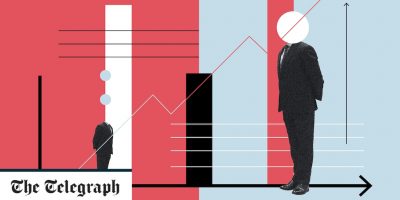This is the second in a seriesdelving into the perennial debate: which generation had it best with money? We’ll look at property, investment returns, pensions, savings rates and pensions before reaching a conclusion.
People invest for a variety of reasons: retirement, income, even fun. Small "DIY" investors have a choice over the assets, markets and stocks they pick – but regardless of time, effort and skill, all are hostage to luck.
But who had more? Will younger investors ever witness the growth of stock markets seen in the Nineties or the superb returns before the last financial crisis? Will older investors ever get the money creamed off their portfolios through high charges and unscrupulous advisers?
So, when was the best time to be an investor?
Baby boomers (those we define as being born between 1946 and 1964) and Generation Xs (born between 1965 and 1980) will argue that they were starved of disposable income to invest. Even if they had the cash, trading was not easy – you needed a broker and some know-how.
Millennials (born between 1982 and 1996) and Generation Z (born after 1997) can rightfully bemoan missing out on the Conservative Party’s wave of privatisations in the Eighties – many people’s first and most lucrative foray into stock markets.
But listed stocks are not the only asset. Bond markets are far bigger and make a huge contribution to the performance of a typical Isa or pension pot. In addition, each cohort has borne different costs, the ease of investing and access to information. It sounds boring, but these factors are crucial: without simple and cheap ways to invest, the returns on offer are irrelevant.
Stock markets
The biggest factor in when making money from stock markets is time – and those with more of it get higher returns even if that means higher volatility.
Ian Forrest of fund shop The Share Centre said: “Earlier generations definitely had a better chance of making good returns from the stock market.
“But," he added, "baby boomers were stung badly in the Seventies by the oil crisis and subsequent market turmoil. Those who held off until the heady days of the Eighties, when economic growth and privatisation boosted the market, did far better.
“Baby boomers and some Generation X investors then enjoyed a very good run all the way through the ‘dotcom’ boom but may have then been hit by that crash, then the financial crisis of 2007.”
We can get a more precise measure of luck by looking at the average yearly return made by each generation when they were exclusively investing in stock markets. We have assumed each generation began investing at 25 and stopped when the next cohort turned 25 and began investing (except for Generation Z where we chose 18). American stocks are used, as it is the most reliable data and acts as a proxy for global markets.
Based on this, the most successful generation were the baby boomers. However, hidden within that are huge market falls, driven by rising oil prices in the wake of the Iranian revolution, such as a 27pc drop in 1974 and huge inflation between 1971 and 1989.
Kasim Zafar of wealth manager EQ Investors, said historical returns were not the only way to measure which generation had it best. He said younger investors could still make substantial sums because the world was transforming and a new breed of companies were booming.
Jim Wood-Smith of Hawksmoor, another wealth manager, agreed. He said: “Millennials and Generation Z will be fine.
“I know the argument is that stocks are so expensive that boomers and Generation X have stolen the next 30 years’ returns up front, but I am not sure I buy that. Capitalism is a constant process of reinvention: businesses will die, new businesses will thrive,” he added.
Nonetheless, the ability to buy huge, established companies cheaply via privatisation in the Eighties was a once-in-a-lifetime opportunity. In addition, central banks have been pumping money into stock markets since 2007, artificially driving up prices, mainly benefiting those already with substantial sums invested.
Winner: Baby boomers
Bond markets
Bonds have traditionally been used to protect money when stock markets fall, and to provide near-guaranteed income. For boomers and Generation X, they fulfilled this role up until 2009.
Since then, the value of bonds has sky-rocketed (and yields plummeted). Bond holders made a lot of money banking these gains but in the long run lost the all-important yield. Now, bond investors own very expensive bonds susceptible to huge falls in value and income is non-existent.
Generation Z is essentially unaffected. They are young enough to invest most of their money in stocks. The lack of income offered by today’s bonds – which forced boomers, Generation X and millennials into stocks – meant Generation Z has enjoyed artificially inflated share price growth.
Mr Wood-Smith said: “Bonds have been great assets to own on paper, but increasingly lousy if you want to get an income."
However, Mr Zafar offered another view. He said: “Bonds have been the traditional counterbalance to stocks but they cannot do that anymore. From that perspective, the boomers and Generation X definitely had it better in their early years."
Overall though, boomers, Generation X and millennials may have made money but they have all lost a valuable income and a good diversifier when they need it most. Finding a replacement has been costly and difficult.
Winner: Generation Z
Funds and access
What happened in stock and bond markets is irrelevant if investors cannot access those assets. One area where different generations had vastly contrasting experience is the ease of investing.
Personal Equity Plans (Peps) were introduced around the time of the wave of privatisations of the late-Eighties, as was the original personal pension. In the Nineties the Isa was born and self-invested personal pension (Sipp) became available via fund shops that we know today, just as millennials began to invest.
It has never been easier to buy a fund. Isas take minutes to open and investors are able to make their trades almost instantly.
Compare that with needing to post cheques with a form to buy a fund as older generations did.
Danny Cox of fund shop Hargreaves Lansdown said: “Some companies had a 27-page application form to open a pension. There were no fund shops, you had to have a Pep with every fund company if you wanted to own a fund, it was a nightmare to manage.”
There are now also generous tax-breaks on offer. Isas, Sipps, fund shops, healthy competition and better regulation built on fixing scams have made the market a safer place.
It has never been cheaper or simpler to invest. You can set up a portfolio and buy a stock or fund in seconds, while watchdogs have more teeth to tackle scammer and protect your money.
But generous tax breaks offered by Isas and Sipps are never guaranteed. So millennials edge this given Generation Z will potentially face a worse tax environment if a future government decided to take away some or all of these perks.
Winner: Millennials
Fees
The level of fees paid in the past to financial advisers, fund managers and Pep providers is staggering. Back when boomers and Generation X started investing, funds typically charged 5pc on entry, 3pc of which went to brokers in commission.
Annual fees on fairly basic stock funds were closer to 1.5pc and even passive "tracker" funds charged 1pc. Almost everyone had to buy through an adviser, which added to costs.
Fast forward to 2019 and the world is very different. In 2013 the City watchdog banned commission paid to brokers and advisers. There are now more options for DIY investors.
Plain vanilla stock funds charge around 0.6pc a year on average, and you can buy a tracker fund mirroring the London market fund for as little as 0.04pc.
The pressure on fees from the watchdog and competition has been immense, particularly in the past decade.
Clearly every investor benefits from lower fees, but boomers, Generation X and millennials have lost money to City fund managers they will never get back.
Winner: Generation Z
Overall winner
All things being equal, Generation Z and millennials will have larger pensions and Isas simply because today’s fees are so low. Yet the returns seen by boomers and Generation X made investors wealthy just before the fallout from the financial crisis pushed assets to record highs.
Overall, the luckiest generation is baby boomers. They also benefited from tighter regulations, lower costs and better products but the money they made from cheap stocks and prolonged bull markets are opportunities likely never to be repeated.
























Comments